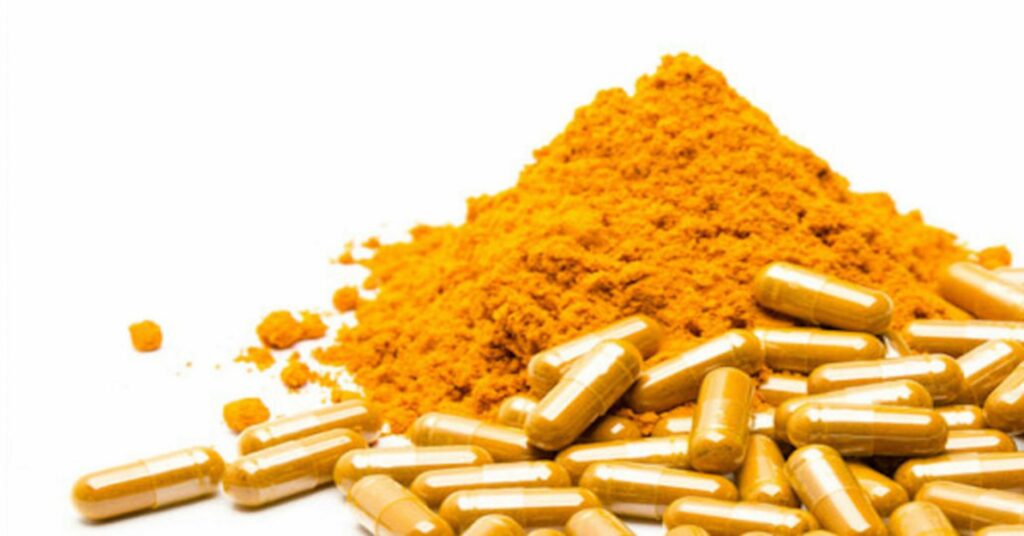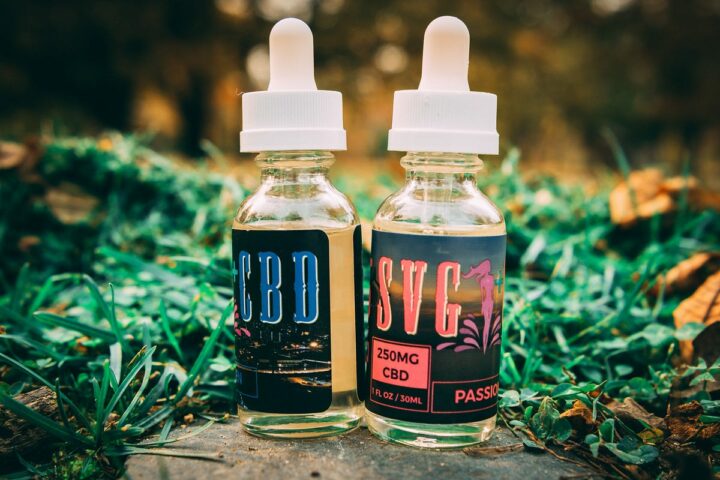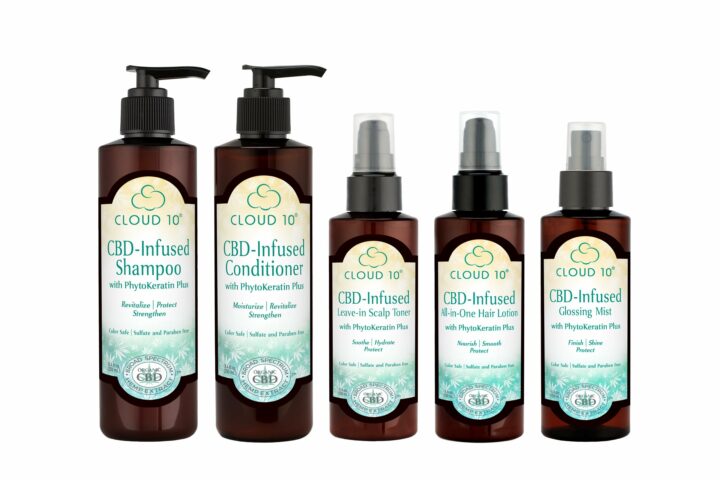Curcumin Capsules
What is Curcumin Capsules
Curcumin capsules are a dietary supplement made from the active ingredient in turmeric, a popular spice commonly used in Indian and Middle Eastern cuisine. Curcumin is known for its antioxidant and anti-inflammatory properties and has been shown to have a range of potential health benefits. Here is a comprehensive guide on curcumin capsules.
What is Curcumin?
Curcumin is a natural compound found in turmeric, which is a spice that comes from the root of the Curcuma longa plant. Turmeric has been used for centuries in traditional Ayurvedic and Chinese medicine to treat a range of health conditions. Curcumin is responsible for the vibrant yellow color of turmeric and is believed to be the compound responsible for many of its health benefits.
What are Curcumin Capsules?
Curcumin capsules are a dietary supplement that contain concentrated curcumin extract. The curcumin is typically extracted from the turmeric root and then processed to create a highly concentrated form. The curcumin is then encapsulated in a gelatin or vegetarian capsule for easy consumption.
Potential Health Benefits of Curcumin Capsules
Curcumin has been shown to have a range of potential health benefits, including:
- Anti-inflammatory properties: Curcumin has been shown to have anti-inflammatory properties, which may help to reduce inflammation in the body and alleviate symptoms of conditions such as arthritis, asthma, and inflammatory bowel disease.
- Antioxidant properties: Curcumin is a powerful antioxidant, which means that it can help to protect the body from damage caused by free radicals.
- Pain relief: Curcumin has been shown to have pain-relieving properties and may be effective at reducing pain associated with conditions such as osteoarthritis.
- Brain health: Curcumin has been shown to have potential benefits for brain health, including improved cognitive function and a reduced risk of Alzheimer’s disease.
- Heart health: Curcumin may help to improve heart health by reducing inflammation and lowering cholesterol levels.
Dosage and Side Effects
The recommended dosage of curcumin capsules can vary depending on the specific product and the intended use. It is important to follow the recommended dosage instructions provided by the manufacturer. In general, curcumin is considered safe and well-tolerated, but some people may experience side effects such as digestive issues or allergic reactions.
Conclusion
Curcumin capsules are a dietary supplement that contains concentrated curcumin extract, which is the active ingredient in turmeric. Curcumin has been shown to have a range of potential health benefits, including anti-inflammatory and antioxidant properties, pain relief, and potential benefits for brain and heart health. If you are considering using curcumin capsules, it is important to follow the recommended dosage instructions and consult with a healthcare professional if you have any concerns.
How to Use Curcumin Capsules
Curcumin capsules are a dietary supplement made from the active ingredient in turmeric, which has been shown to have a range of potential health benefits. Here is a comprehensive guide on how to use curcumin capsules.
Step 1: Choose a High-Quality Product
When shopping for curcumin capsules, it is important to choose a high-quality product from a reputable manufacturer. Look for a product that contains a standardized extract of curcumin, which will ensure that you are getting a consistent dose of the active ingredient.
Step 2: Follow the Recommended Dosage
The recommended dosage of curcumin capsules can vary depending on the specific product and the intended use. It is important to follow the recommended dosage instructions provided by the manufacturer. In general, most curcumin supplements recommend a dosage of 500-1000mg per day.
Step 3: Take with Food
Curcumin is fat-soluble, which means that it is best absorbed when taken with a meal that contains healthy fats. Taking curcumin capsules with food can help to enhance absorption and maximize the potential benefits.
Step 4: Be Consistent
To experience the potential benefits of curcumin, it is important to be consistent with your supplement regimen. Taking curcumin capsules daily as part of a healthy lifestyle can help to support overall health and wellness.
Step 5: Consult with a Healthcare Professional
Before starting any new supplement regimen, it is important to consult with a healthcare professional to ensure that it is safe and appropriate for your individual needs. This is particularly important if you are taking any medications or have any underlying health conditions.
Conclusion
Curcumin capsules are a dietary supplement that contain concentrated curcumin extract, which is the active ingredient in turmeric. To use curcumin capsules, it is important to choose a high-quality product, follow the recommended dosage instructions, take with food, be consistent, and consult with a healthcare professional if you have any concerns. With proper use, curcumin capsules may help to support overall health and wellness.
What are the Benefits of Curcumin Capsules
Curcumin capsules are a dietary supplement made from the active ingredient found in turmeric, a spice commonly used in Indian and Southeast Asian cuisine. Curcumin has been studied for its potential health benefits, and here is a comprehensive guide on some of the benefits that curcumin capsules may offer.
1. Anti-Inflammatory Properties
Curcumin is known for its potent anti-inflammatory properties, which may help to reduce inflammation throughout the body. Chronic inflammation is associated with a range of health conditions, including arthritis, heart disease, and cancer.
2. Antioxidant Effects
Curcumin is a powerful antioxidant, which means that it can help to neutralize harmful free radicals in the body that can contribute to cellular damage and disease. Antioxidants are important for overall health and may help to prevent chronic diseases and slow the aging process.
3. May Improve Brain Function
Curcumin has been shown to have neuroprotective properties, which means that it may help to protect brain cells from damage and improve overall brain function. Some studies suggest that curcumin may even help to improve memory and reduce the risk of cognitive decline.
4. May Lower the Risk of Heart Disease
Curcumin has been studied for its potential benefits for heart health. Some research suggests that curcumin may help to improve blood vessel function, reduce inflammation, and lower levels of cholesterol and triglycerides, all of which may contribute to a lower risk of heart disease.
5. May Help with Digestive Issues
Curcumin has been shown to have potential benefits for digestive health, including reducing symptoms of irritable bowel syndrome (IBS) and inflammatory bowel disease (IBD). Some research suggests that curcumin may help to reduce inflammation in the gut and improve gut function.
Conclusion
Curcumin capsules are a dietary supplement that may offer a range of potential health benefits, including anti-inflammatory properties, antioxidant effects, improved brain function, lower risk of heart disease, and potential benefits for digestive health. It is important to choose a high-quality product and follow the recommended dosage instructions to experience the potential benefits of curcumin capsules. As with any supplement, it is also important to consult with a healthcare professional before starting a new regimen.
What to Look for when shopping for Curcumin Capsules
When shopping for curcumin capsules, it is important to look for a high-quality product that contains a standardized extract of curcumin. Here are some factors to consider when choosing a curcumin supplement:
1. Quality of the Curcumin Extract
Look for a curcumin supplement that contains a standardized extract of curcumin. This will ensure that you are getting a consistent dose of the active ingredient. Also, look for a product that is made with high-quality ingredients and has undergone rigorous testing to ensure purity and potency.
2. Dosage
The recommended dosage of curcumin capsules can vary depending on the specific product and the intended use. Look for a product that provides a clear dosage recommendation and follow the instructions carefully.
3. Absorption
Curcumin is fat-soluble, which means that it is best absorbed when taken with a meal that contains healthy fats. Look for a product that is formulated for optimal absorption, such as a product that includes black pepper extract, which can help to enhance the absorption of curcumin.
4. Additional Ingredients
Some curcumin supplements may include additional ingredients that can enhance the potential benefits of curcumin, such as ginger extract or boswellia. Consider whether you would like a product that includes additional ingredients based on your individual health needs and goals.
5. Brand Reputation
Choose a reputable brand with a good track record of producing high-quality supplements. Look for a brand that has undergone third-party testing and is transparent about the sourcing and manufacturing of its products.
Conclusion
Curcumin capsules can be a beneficial dietary supplement for overall health and wellness, but it is important to choose a high-quality product. When shopping for curcumin capsules, look for a product that contains a standardized extract of curcumin, provides a clear dosage recommendation, is formulated for optimal absorption, may include additional ingredients based on your individual health needs and goals, and comes from a reputable brand that has undergone third-party testing.
FAQs-Curcumin Capsules
What is curcumin capsules used for?
Curcumin capsules are dietary supplements that contain curcumin, which is a bioactive compound found in turmeric. Curcumin is known for its potential health benefits and has been traditionally used in Ayurvedic medicine for its anti-inflammatory and antioxidant properties. Curcumin capsules are commonly used as a natural remedy to support joint health, reduce inflammation, and promote overall well-being. Some studies suggest that curcumin may also have potential benefits for heart health, brain function, and digestive health. However, it’s important to note that individual results may vary, and it’s always advisable to consult with a healthcare professional before starting any new supplement regimen.
Is it OK to take curcumin everyday?
Taking curcumin capsules daily is generally considered safe for most people when taken at recommended doses. Curcumin is a natural compound found in turmeric and has been consumed for centuries as a spice and medicinal herb. It is well-tolerated by most individuals and is not associated with significant side effects in typical doses. However, it’s important to follow the instructions provided by the manufacturer or consult with a healthcare professional for proper dosage and duration of use. Some people may experience mild gastrointestinal discomfort or allergic reactions, but these are rare. Additionally, curcumin may interact with certain medications, so it’s advisable to talk to your doctor if you have any underlying health conditions or are taking other medications to ensure there are no potential interactions.
What are the side effects of curcumin capsules?
Curcumin capsules are generally safe for most people when taken at recommended doses. However, some individuals may experience mild side effects, although they are relatively rare. These side effects may include digestive issues such as stomach upset, nausea, or diarrhea. In rare cases, allergic reactions such as rash, itching, or swelling may occur. It’s important to note that curcumin may interact with certain medications, particularly blood thinners, so it’s advisable to consult with a healthcare professional before starting curcumin supplementation, especially if you have underlying health conditions or are taking other medications.
Who should not take curcumin supplements?
While curcumin supplements are generally considered safe for most people, there are certain individuals who should exercise caution or avoid taking them. It is advisable for pregnant or breastfeeding women to consult with their healthcare provider before using curcumin supplements, as there is limited research on their safety in these populations. People with gallbladder or bile duct disorders should also be cautious, as curcumin can stimulate the production of bile. Additionally, individuals with bleeding disorders or those taking blood-thinning medications should consult with a healthcare professional, as curcumin may have anticoagulant properties. As with any dietary supplement, it’s always best to seek medical advice if you have specific health concerns or are taking other medications
What is the downside of curcumin?
Curcumin, the active compound in turmeric, is generally well-tolerated by most people. However, there are a few potential downsides to consider. One of the main challenges with curcumin is its poor bioavailability, meaning that the body has difficulty absorbing and utilizing it effectively. To address this, some curcumin supplements may include other compounds or technologies to enhance absorption. Additionally, curcumin may interact with certain medications, such as blood thinners, and may affect their efficacy. It’s important to consult with a healthcare professional before taking curcumin supplements, especially if you have any underlying health conditions or are taking other medications. Lastly, while curcumin is generally safe, high doses or prolonged use may cause gastrointestinal issues such as nausea, diarrhea, or stomach upset in some individuals.
Which is better to take turmeric or curcumin?
Turmeric and curcumin are closely related, as curcumin is the active compound found in turmeric. While both can offer health benefits, curcumin is the component responsible for most of turmeric’s therapeutic properties. Turmeric itself contains only about 2-5% curcumin, so taking curcumin supplements in concentrated form can provide higher doses and potentially more potent effects. However, curcumin has poor bioavailability, meaning it is poorly absorbed by the body. Taking turmeric with black pepper or a supplement formulated to enhance curcumin absorption may help overcome this limitation. Ultimately, the choice between turmeric and curcumin depends on your specific needs and preferences. Consulting with a healthcare professional can help determine the most suitable option for you.
Is curcumin good for arthritis?
Curcumin, the active compound in turmeric, has shown promising potential in relieving symptoms of arthritis. It possesses anti-inflammatory properties that can help reduce joint pain, swelling, and stiffness associated with arthritis. Curcumin may also help inhibit certain enzymes that contribute to joint inflammation. While research on curcumin’s effectiveness for arthritis is still ongoing, some studies suggest that it can be a valuable adjunct therapy in managing arthritis symptoms. However, it is important to consult with a healthcare professional before starting any new supplement or treatment regimen to ensure it is safe and appropriate for your specific condition.
What is the best form to take curcumin?
The best form to take curcumin depends on several factors, including its bioavailability and your personal preference. Curcumin is known to have low bioavailability, meaning that it is poorly absorbed by the body. To enhance its absorption, you can consider taking curcumin supplements that contain ingredients like piperine, which is found in black pepper and can enhance curcumin absorption. Additionally, liposomal curcumin or nano-curcumin formulations are designed to improve bioavailability. Some people also prefer consuming turmeric powder or fresh turmeric root, as it contains natural curcumin along with other beneficial compounds. Ultimately, it’s important to choose a form of curcumin that suits your needs and consult with a healthcare professional for personalized advice.
Is curcumin an anti-inflammatory?
Yes, curcumin is widely recognized for its anti-inflammatory properties. It is the active compound found in turmeric, a spice commonly used in traditional medicine. Curcumin exerts its anti-inflammatory effects by inhibiting various molecular pathways involved in inflammation. It can help reduce the production of inflammatory molecules in the body and modulate the activity of enzymes and proteins associated with inflammation. Numerous studies have shown that curcumin may help alleviate inflammation-related conditions such as arthritis, joint pain, and certain chronic diseases. However, it’s important to note that the effectiveness of curcumin may vary, and it is advisable to consult with a healthcare professional for proper guidance and individualized treatment.
What is the strongest natural anti-inflammatory?
One of the strongest natural anti-inflammatory substances is curcumin, which is derived from turmeric. Curcumin has been extensively studied for its potent anti-inflammatory properties and has shown promising results in reducing inflammation in various conditions. Other natural anti-inflammatory compounds include ginger, green tea, resveratrol (found in grapes and berries), omega-3 fatty acids (found in fatty fish), and boswellia. Each of these substances has been shown to have anti-inflammatory effects and may help reduce inflammation and alleviate related symptoms. However, the strength and effectiveness of natural anti-inflammatories can vary depending on the individual and the specific condition, so it’s important to consult with a healthcare professional for proper guidance and treatment.
How quickly does curcumin work for inflammation?
The time it takes for curcumin to work in reducing inflammation can vary depending on several factors, including the individual’s health, the specific inflammatory condition, and the dosage of curcumin being taken. Some studies have reported noticeable effects within a few weeks of regular curcumin supplementation, while others may take longer. It’s important to note that curcumin’s absorption and bioavailability can be limited, and it may be beneficial to consume it with black pepper or in liposomal or nanoparticle formulations to enhance its absorption. Additionally, curcumin is often used as part of a long-term, ongoing approach to managing inflammation rather than providing immediate relief. It’s advisable to consult with a healthcare professional for personalized advice and guidance on using curcumin for inflammation.
Is curcumin better than ibuprofen?
Curcumin and ibuprofen are both compounds with potential anti-inflammatory properties, but they work through different mechanisms. Ibuprofen is a nonsteroidal anti-inflammatory drug (NSAID) that inhibits the production of certain inflammatory chemicals in the body. On the other hand, curcumin is a natural compound found in turmeric that has been studied for its anti-inflammatory effects. While both can help reduce inflammation, curcumin is generally considered to have a more gentle and milder effect compared to ibuprofen. However, it’s important to note that the effectiveness of curcumin can vary between individuals and conditions, and it may not be as potent as ibuprofen for severe or acute inflammation. It’s always recommended to consult with a healthcare professional for personalized advice and to discuss the best treatment options for your specific situation.
Does curcumin really work?
Curcumin has been the subject of numerous studies investigating its potential health benefits, including its anti-inflammatory and antioxidant properties. While the results are promising, it’s important to note that curcumin’s effectiveness can vary depending on factors such as dosage, bioavailability, and individual response. The bioavailability of curcumin is relatively low, meaning that it may not be easily absorbed and utilized by the body. To enhance its absorption, curcumin supplements often include additional compounds such as piperine. While curcumin may provide benefits for certain conditions, it’s always advisable to consult with a healthcare professional before starting any new supplement regimen to ensure it is appropriate for your specific health needs.
Is ginger better than turmeric for inflammation?
Ginger and turmeric are both well-known for their potential anti-inflammatory properties. They contain different active compounds that contribute to their respective benefits. Turmeric contains curcumin, which has been extensively studied for its anti-inflammatory effects. Ginger, on the other hand, contains gingerol and other bioactive compounds that also exhibit anti-inflammatory properties. While both ginger and turmeric can be beneficial, it’s challenging to directly compare them as their mechanisms of action and effectiveness may vary depending on the specific condition or individual. Some studies suggest that combining ginger and turmeric may have synergistic effects. Ultimately, the choice between ginger and turmeric may depend on personal preference and individual response. It’s always recommended to consult with a healthcare professional for personalized advice.
What are the 10 serious side effects of turmeric?
While turmeric is generally considered safe for most people when consumed in moderation, excessive or prolonged use may have some potential side effects. However, it’s important to note that serious side effects from turmeric are relatively rare. Some reported side effects of turmeric, particularly at high doses or with long-term use, include gastrointestinal issues such as stomach upset, indigestion, and diarrhea. Turmeric may also have a blood-thinning effect, so individuals taking blood-thinning medications should exercise caution. In rare cases, allergic reactions or contact dermatitis may occur. Turmeric may interact with certain medications, such as those for diabetes or acid reflux, so it’s important to speak with a healthcare professional before taking turmeric supplements, especially if you have an underlying medical condition or are on any medications. It’s always advisable to follow recommended dosages and consult with a healthcare professional if you experience any concerning symptoms.
- Red Delicious Weed Strain Information - May 8, 2024
- Caramel Apple Gelato Weed Strain Information - May 8, 2024
- Apple Pie aka Sweet Apple Crumble Pie Weed Strain Information - May 3, 2024












